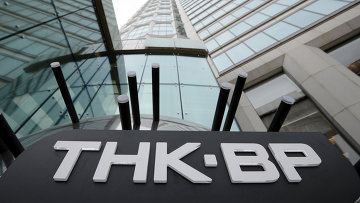OMSK, November 9 - RAPSI. The Eighth Commercial Court of Appeals has postponed the appeal against the 100.4 billion rubles ($3.18 billion) awarded to TNK-BP Holding minority shareholder Andrei Prokhorov from BP Russian Investment Limited (BPRI) and BP p.l.c. until December 14.
The court requires the TNK-BP shareholders' correspondence on the company's conclusion of contracts with Rosneft for the development of deposits in the Arctic to be submitted for examination.
On August 6, the Tyumen Region Commercial Court partially upheld Prokhorov's lawsuit, in which he initially sought 288 billion rubles ($9.14 billion) from the two co-defendants. The plaintiff claimed that this amount was equal to the losses TNK-BP Holding incurred from the transaction between BP and Rosneft which never took place. BPRI, Rosneft and TNK-BP Limited directors David Keith Peattie, Brian Gilvary and Lord George Robertson are appealing the ruling.
The legal action stems from allegations that BP PLC and its subsidiary BP Russian Investments Limited, acting as TNK-BP Limited shareholders, forced their boards to turn down a proposal by TNK-BP Holding to form a strategic partnership with Rosneft and purchase its shares. This lost opportunity allegedly inflicted losses on the TNK-BP Holding.
In January 2011, Rosneft and BP agreed on the equity swap, in which the Russian company would get 5 percent of BP's ordinary shares in exchange for 9.5 percent of Rosneft shares; the companies also agreed to develop the Arctic's Russian shelf in partnership. But according to AAR Consortiums lawsuit, who represent the interests of TNK-BPs Russian shareholders, the transaction was blocked. In June 2011, the negotiations on the transaction ceased.
Prokhorov believes that if TNK-BP had become a member of the strategic partnership between the two companies, then under a swap agreement it would have purchased 1.01 billion common shares in Rosneft, which in turn would have increased in value and brought higher profits to TNK-BP. Therefore, he maintains that the difference between the current fair price of the shares and the price at which TNK-BP would have acquired the stake in the swap was lost profit.



